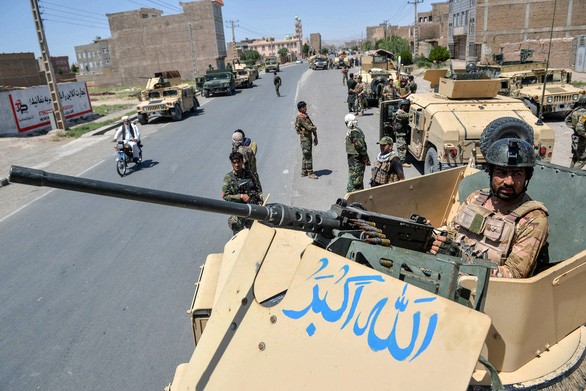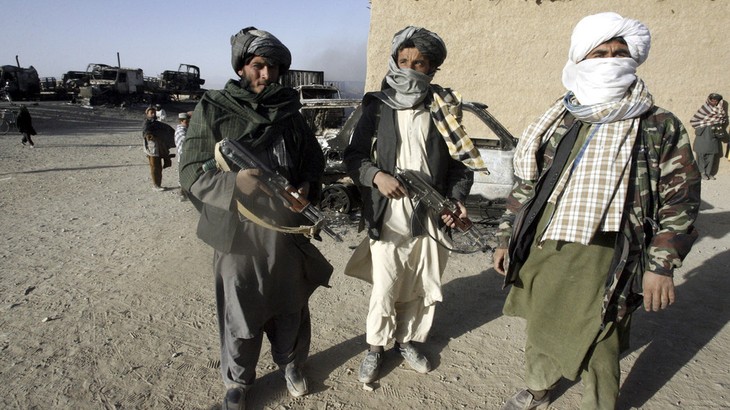(VOVWORLD) - The Taliban have captured Afghanistan's second and third biggest cities, fuelling fears the US-backed government could fall to the insurgents as international forces complete their withdrawal after 20 years of war. With the capture of Kandahar in the south and Herat in the west, it appears the Taliban will eventually capture the capital, Kabul, and take complete control of the country.
 Afghan special forces at a checkpoint in Herat province, August 1. (Photo: AFP) Afghan special forces at a checkpoint in Herat province, August 1. (Photo: AFP)
|
Independent European sources say the Taliban have gained control of about 65% of Afghanistan's territory, including many strategic cities, and are threatening to occupy several more provincial capitals. Afghan government forces are clustering to protect the remaining major cities, including Kabul.
Worrisomesituation
A US defense official, speaking on the condition of anonymity, said on Thursday that US intelligence estimates the Taliban could besiege Kabul in 30 days and take it over within 90 days. A scenario in which the central government loses control could happen faster than US intelligence has forecast: The Taliban might gain full control of Afghanistan within 6 months of the day the US and its allies completely withdraw their combat forces.
The Taliban have won most of the recent battles against the Afghan government troops in inner territories and border areas. The Taliban's advances have created chaos on the roads to Kabul, as tens of thousands of people flee to the capital in the hope of being protected by government troops.
 Taliban forces enter Ghazni, August 12. (Photo: Reuters) Taliban forces enter Ghazni, August 12. (Photo: Reuters)
|
Causes and risks
Analysts attribute the Taliban’s gains to their greater motivation and fighting spirit compared to the Afghan army. The Taliban consider the withdrawal of the Americans and their allies a victory and a golden opportunity to expand their control. The Taliban’s goal is to create an irreversible situation and an overwhelming advantage at the negotiating table with the Afghan government.
With the coalition’s withdrawal Afghan government troops lost both combat support and morale. In the past 20 years, Afghan troops have almost never fought independently in large-scale operations against the Taliban, almost always receiving strong fire support from the US Air Force, and sometimes artillery and infantry support.
The Afghan army are superior to the Taliban in numbers and weapons. They possess 170 combat aircraft and dozens of helicopters, completely overwhelming the air force of the insurgents. But their combat capability is inferior, stemming from years of corruption and bureaucracy in Afghan society and its military.
The Taliban’s rapid ascendancy could pose a difficult problem for US President Joe Biden, who has already said he will not reverse his decision to withdraw US troops.